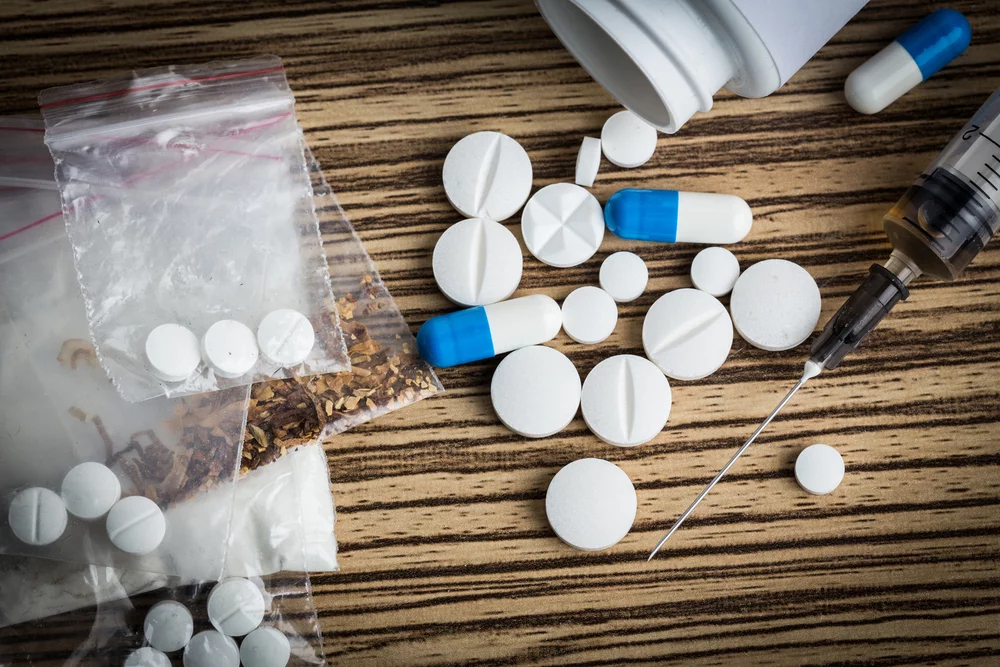What happens when the drugs that are meant to heal begin to harm? Prescription drug abuse is a serious and growing problem worldwide. Learning more about this disturbing trend can aid in preventing misuse and seeking treatment.
Rates of prescription drug abuse have reached epidemic levels in the US, with the UK and Australia also showing troubling increases. The ease of availability of prescription drugs, combined with their potency, have resulted in rapidly rising cases of addiction and overdose, even for those with no prior history of drug abuse.
Understanding the addictive potential of prescription drugs is important in preventing prescription drug addiction, as well as knowing when to seek help if a dependency does arise. If you or a loved one is struggling with a prescription drug addiction, awareness of why treatment is needed and what is available can be life-saving.
The types of prescriptions that have highest rates of abuse fall into three broad categories; stimulants, depressants, and opioids. Prescribed for a range of both physical and mental health conditions, these drugs can cause serious addiction if misused.
Category 1: Stimulants
Typically prescribed to increase levels of attention, alertness, and energy for those living with ADHD or sleep disorders, types of stimulants include amphetamines like Adderall and Dexedrine, as well as methylphenidates like Concerta and Ritalin. These prescription drugs work by affecting the central and autonomic nervous system, intensifying the effects of important neurotransmitters like norepinephrine and dopamine.
Health Risks from Misuse of Stimulants
Even when taken as directed, stimulants can still have a variety of side effects. However, misuse of these drugs, such as taking them in a higher dose or at a greater frequency than prescribed, can lead to serious physical effects including:
- High blood pressure
- Rapid and/or irregular heartbeat
- Rapid breathing
- Rise in body temperature
- Risk of cardiac arrest
Category 2: Opioids
A potent type of pain reliever, opioids have been increasingly prescribed to help people dealing with chronic pain, post-surgery discomfort, or pain related to serious medical conditions like cancer. Opioids include drugs like Oxycontin, Vicodin, Percocet, Dilaudid, morphine, codeine and fentanyl. Opioids work by activating nerve cells called opioid receptors that block pain signals, providing relief from pain and sometimes a sense of euphoria.
Health Risks from Misuse of Opioids
Misuse of opioids can be incredibly dangerous, as just one large dose can cause a potentially fatal overdose. Serious side effects from opioid abuse include:
- Slowed, shallow breathing
- Unconsciousness
- Slowed heart rate
- Lowered blood pressure
- Coma
- Death
Category 3: Depressants
Often prescribed to address anxiety, panic attacks, and trouble sleeping, depressants include barbiturates like Seconal and Phenobarbital, benzodiazepines like Valium, Xanax and Klonopin, and sleep aids like Ambien, Sonata and Lunesta. Most depressants work by affecting the central nervous system, specifically by increasing the activity of a chemical called gamma-aminobutyric acid, or GABA, which inhibits brain activity and makes people feel calm and drowsy.
Health Risks from Misuse of Depressants
Depressants, particularly benzodiazepines, can cause physical dependence even when taken as directed, and have a high risk for addiction when misused. Serious side effects can occur if these prescription drugs are abused, including:
- Slowed heart rate
- Slowed breathing
- Lowered blood pressure
- Increased risk of respiratory problems or death when combined with alcohol
How Does Prescription Drug Abuse Start?
In most cases, prescription drug misuse starts in a seemingly reasonable or casual way. For some people, the medications they are prescribed might not be adequately managing their symptoms. Instead of consulting with their doctor, they may decide to take more than the recommended dosage or increase the frequency of use in an attempt to feel better. Others may offer medication to friends or family members who may be having trouble with health issues of their own, such as with sleeping, focusing, or managing pain. Unfortunately, taking medications outside of medical supervision or without guidance from a doctor increases the chances for prescription drug use to become addictive.
In other cases, people may seek out addiction drugs specifically for their euphoric or numbing effects in similar ways that others use illegal drugs or alcohol. Though prescription drugs can be effective in relieving stress and anxiety, or providing a feeling of escape in the short-term, their serious side effects far outweigh these temporary benefits, and can actually exacerbate existing mental or physical health issues.
What Types of Treatment are Available for Prescription Drug Addiction?
As prescription drug abuse becomes a more common problem in countries across the world, treatment options for addiction have also expanded to include a range of methods designed to restore physical and mental wellbeing.
Detox: The first step of recovery
The three most abused types of prescription drugs all require medically-supervised detox in order to safely treat physical dependency before beginning to address the other aspects of the addiction. Stopping these drugs can cause severe symptoms of withdrawal that may require immediate medical intervention. These symptoms can include:
- Nausea, vomiting, diarrhea
- Tremors
- Anxiety, panic attacks
- Headaches
- Heart palpitations
- Seizures
- Muscle aches
- Sweating
- Mood swings
- Agitation
- Sleep disturbances
- Chills
- Depression
- Drug cravings
Contacting a doctor or an addiction specialist is an important first step in creating a safe, medically-supported detox plan to make you as comfortable as possible during this initial stage of recovery.
Cognitive behavioural therapy (CBT)
Cognitive behavioural therapy, or CBT, is an effective and widely-practiced method of therapy often used for those looking to overcome addiction. CBT identifies the root causes of addiction, explores problematic patterns of thought and behaviour, and elicits ways in which to constructively address and shift these patterns. As part of this method, clients and therapists also discuss and practice alternative, healthy coping mechanisms for managing stress and dealing with challenging situations to improve resilience and lower the risk of relapse.
Group therapy
Group therapy offers a unique and affirming experience to those in recovery. Surrounded by people with similar challenges and life experiences, participants benefit from informed support, knowledge, and advice from their peers and a skilled, compassionate facilitator. This also allows participants a glimpse into different stages of recovery, helping to broaden a sense of what life outside of addiction is like.
Wellness practices
From yoga to jogging to mindfulness meditation, wellness practices help to strengthen the body and provide a healthy outlet for stress and tension. As those in recovery seek to expand their coping mechanisms past substance dependency, engaging in different types of wellness practices helps to find new ways of relaxation and natural methods of boosting mood.
Ending Prescription Drug Addiction at The Dawn

The Dawn Wellness Centre and Rehab is a drug and alcohol rehab in Thailand that promotes an environment of personal growth and healing for people who want to change their lives and overcome addiction or mental health issues.
For those seeking prescription drug addiction rehab in Thailand, the fundamental objective of The Dawn’s programme is for clients to achieve and maintain long-term recovery by equipping each individual with a personalised set of coping tools to use when dealing with life’s challenges, effectively extinguishing the desire to use again. Our internationally-trained team of experts have years of experience successfully supporting clients through the recovery process.
Prescription Drug Addiction Treatment in Thailand
The Dawn’s clinical team has created a holistic addiction treatment programme which uses a mix of the latest psychotherapeutic techniques with scientifically-proven wellness practices to ensure holistic healing and instill healthy coping skills. In a day, clients will attend both group and individual therapy, participate in meditation and yoga sessions, and receive a Thai massage or personal fitness training. Our staff works closely with each client to create a customised treatment plan, which is adapted throughout their stay to stay relevant to immediate needs and personal goals.
24-hour Medical Support and Onsite Detox
For those looking for a safe opioid rehab Thailand, or benzo rehab Thailand, The Dawn is able to offer medically-assisted detox facilitated by our 24-hour onsite professional nursing team. The nursing team will carefully monitor the client throughout this process under the supervision of our psychiatrist, who will prescribe medication as necessary to ease withdrawal symptoms. In emergencies, clients will immediately be admitted to hospital.
If you or a loved one is struggling with prescription drug addiction, call The Dawn today to learn more about how we can help.
Related Posts
 What You Need to Know About Opioid Withdrawal Symptoms, Detox and Treatment
Opioid addiction is becoming a global problem and is currently the primary cause of drug overdose in the U.S. Opioids such as morphine and codeine are synthetic drugs that cause the...
What You Need to Know About Opioid Withdrawal Symptoms, Detox and Treatment
Opioid addiction is becoming a global problem and is currently the primary cause of drug overdose in the U.S. Opioids such as morphine and codeine are synthetic drugs that cause the...
 Guide to Addiction & Mental Health in Australia
Australia, as with many other countries, isn’t alone in facing a growing problem with addiction and mental health-related issues. Dealing with this growing crisis and the complexities of addiction and...
Guide to Addiction & Mental Health in Australia
Australia, as with many other countries, isn’t alone in facing a growing problem with addiction and mental health-related issues. Dealing with this growing crisis and the complexities of addiction and...
 Opioid Treatment – A Way Out for Addicts Trapped in the Prescription Drug Disaster
The need for opioid treatment around the world is increasing as the opioid crisis deepens. In the USA, in 2016, 64,000 people died from opioid overdoses. Australia has seen a...
Opioid Treatment – A Way Out for Addicts Trapped in the Prescription Drug Disaster
The need for opioid treatment around the world is increasing as the opioid crisis deepens. In the USA, in 2016, 64,000 people died from opioid overdoses. Australia has seen a...
 Drug Classifications: A Comprehensive Guide
Drug classifications have many different forms, from chemical content to similar effects and legal classifications. Read on to learn about drug classifications.
Drug Classifications: A Comprehensive Guide
Drug classifications have many different forms, from chemical content to similar effects and legal classifications. Read on to learn about drug classifications.





